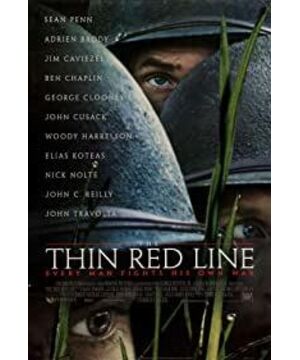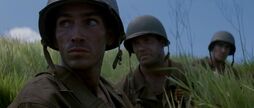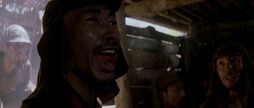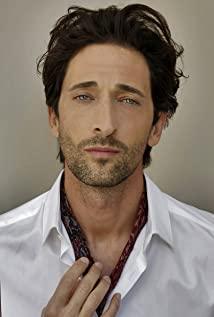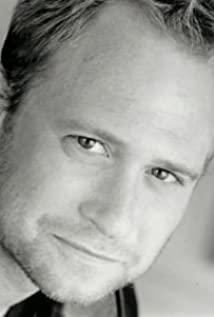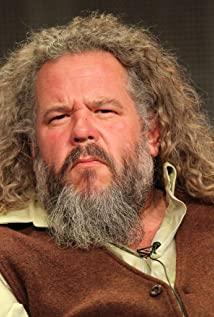When we talk about war, we talk about why we fought, beliefs, liberties, rights, etc., and where this falls often determines the direction of the entire movie. Many people say that most of the domestic war films are unreal, not only in the pictures, such as the performance of the characters after being shot, the depiction of the battlefield, and so on. What is more important is the first feeling that the characters show when facing this situation, what and who they think of in the first time. Just like the excellent work in the domestic film "Assembly", what makes it different is that Guzidi is no longer fighting and living for the purpose of realizing the so-called doctrine, and his persistence has a more tangible foothold.
There are monologues and flashbacks of multiple characters throughout the film, and there are even some slightly abrupt characters and dialogues: the dialogue between the major general and the colonel played by John Travolta, and the soldiers who are gone. The entanglement between the lover and the lover. This overly lyrical narrative makes the first half hour of the film seem too literary, and it doesn't even need to be measured by the standard of war. The movie climaxes from the middle of the film, and the successive war scenes make people feel relieved, but when this climax ends, we realize that this is just another expression of the director's theme: "Everyone fight his own war", The gladiatorial fight between Elias Koteas' company commander and Nick Nolte's captain, Nick telling some big truths that don't even appear in a Hollywood war movie, he was an officer who waited fifteen years and if he fought Without this one, his future will be completely scrapped. The general played by John Travolta also insinuated at the beginning to tell the colonel beside him not to covet his rights as a general, and even he himself mentioned his position, playing more of a politician than a soldier. Power, ambition, this is their war. And Captain Elias is just a simple man trying to keep his brothers alive. This is the purpose of his battle, to live. Private Witt is one of the most literary and artistic films of this war. From the beginning of the film to the end, he has been looking for the meaning of this war to himself, but he has not found a suitable position in the end. When surrounded by a group of Japanese soldiers, the eyes that were far more dazed than fear revealed everything.
As for the other party in the film, the Japanese, their performance once again confirmed the director's inner pursuit of expression. It is rare for the Japanese soldiers to show their most vulnerable side, the eyes with no fighting spirit, the young people who hug and cry, the Japanese soldiers who surrendered more than most of the Pacific War movies... not to see like The scenes of dying with hand grenades in movies such as Letter from Iwo Jima will not make people feel the deep fear of Japanese soldiers who die in the body but not the soul in HBO's Pacific. Isn't this the same Battle of Guadalcanal ? The director chose this other angle, but he didn't want to let the Japanese destroy the hustle and bustle that was finally created.
Having said that, I have never heard of such a war movie before, look at this cool cast: Sean Penn, John Trabolta, George Clooney, Adrien Brody, John Cusack, Woody Harrelson, Nick Nolte... Truly amazing~~!
View more about The Thin Red Line reviews


